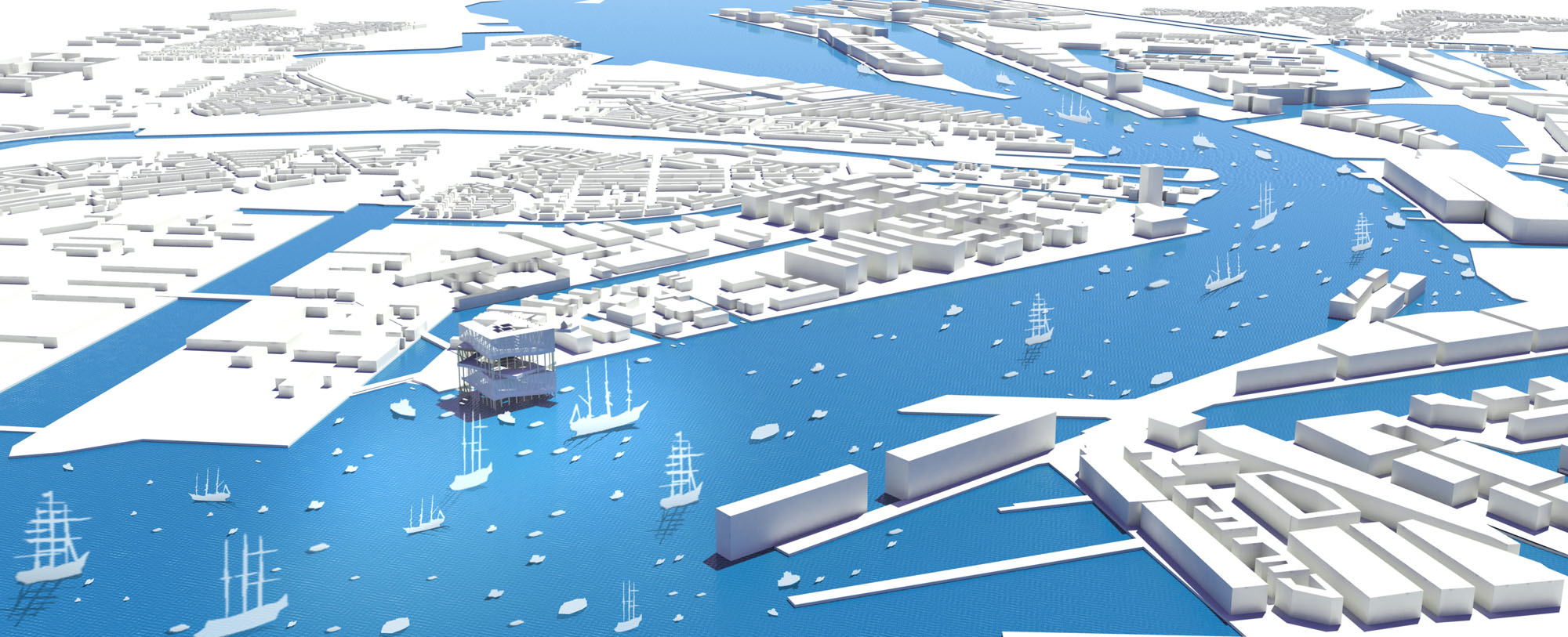Open Fort 400 - Omega Point
The Open Fort 400 is an attempt to generate ideas for an Open Fort that facilitates innovation in the cultural, social and economic domains. It is an Open Fort that will stimulate the continued social, cultural and economic development of Amsterdam North.
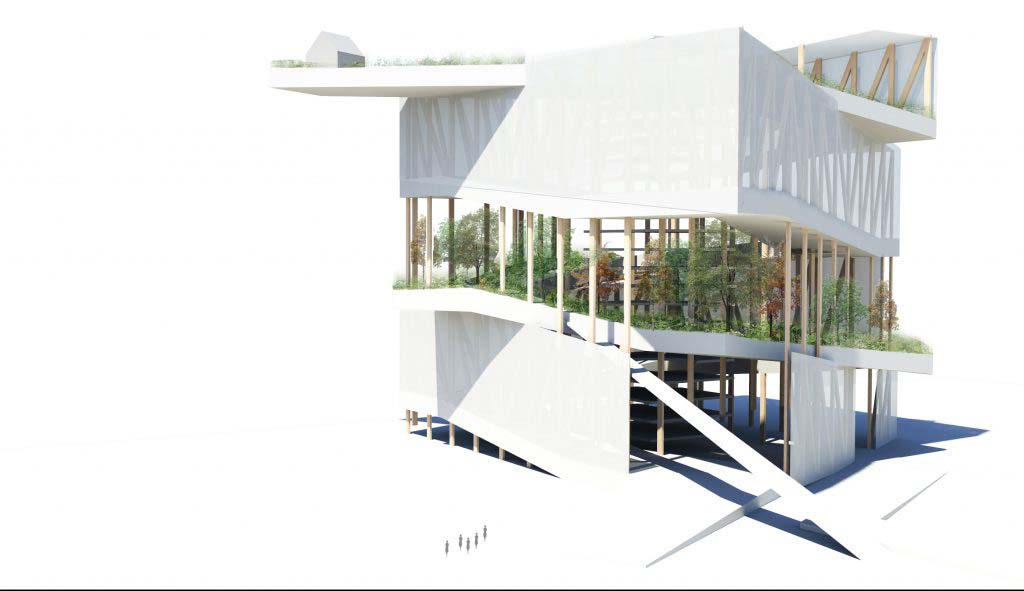
Conceptual perspective render
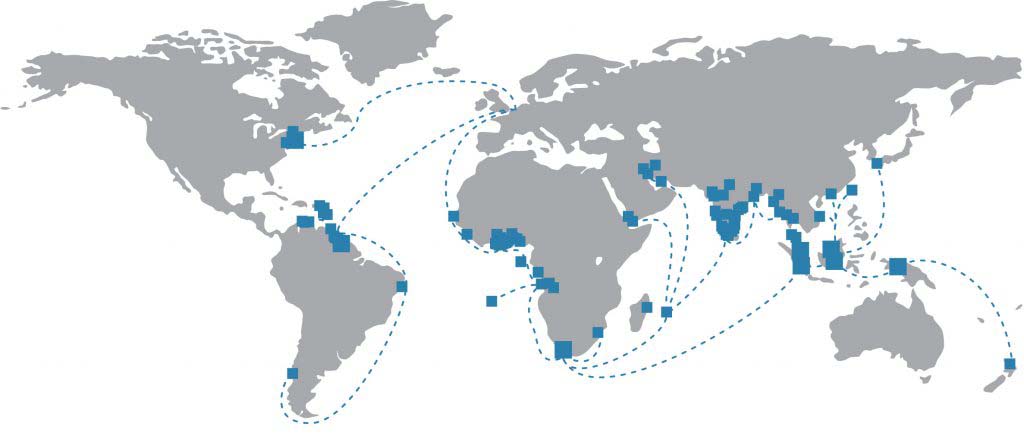
Dutch colonization trade routes
Dutch Colonization; Our History
We have always explored better grounds when our initial resources were unsatisfactory. We initiated Forts across the globe, and experienced a Golden Age that was able to create world-wide catalyst program. Colonialism normally refers to a period of history from the 15th to the 20th century when people from Europe built colonies on other continents.
Dutch Colonization; Our Present
Although we have condemned this practice of global injustice, we still have an active role in exploiting foreign eco-systems for one-sided ego-centric benefits.
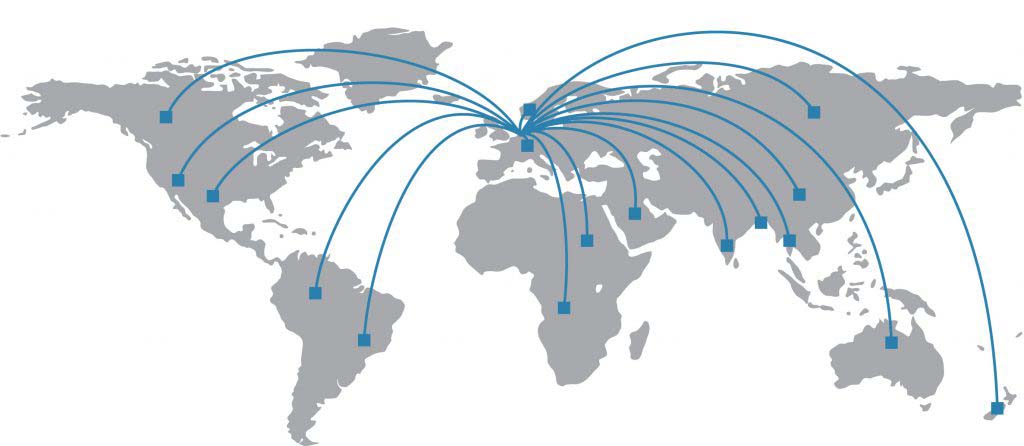
Modern-day economic offloading
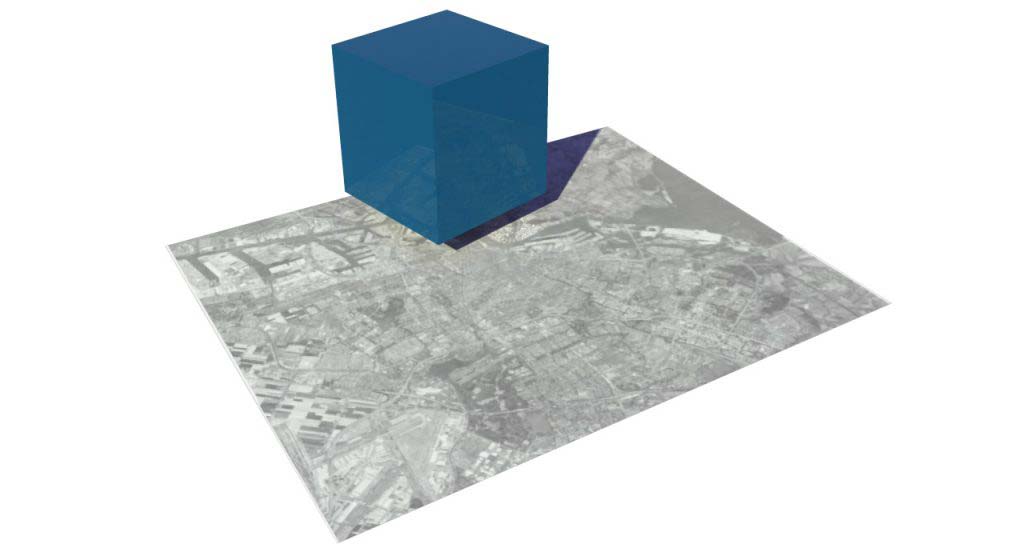
Amsterdam, 740 000 inh.
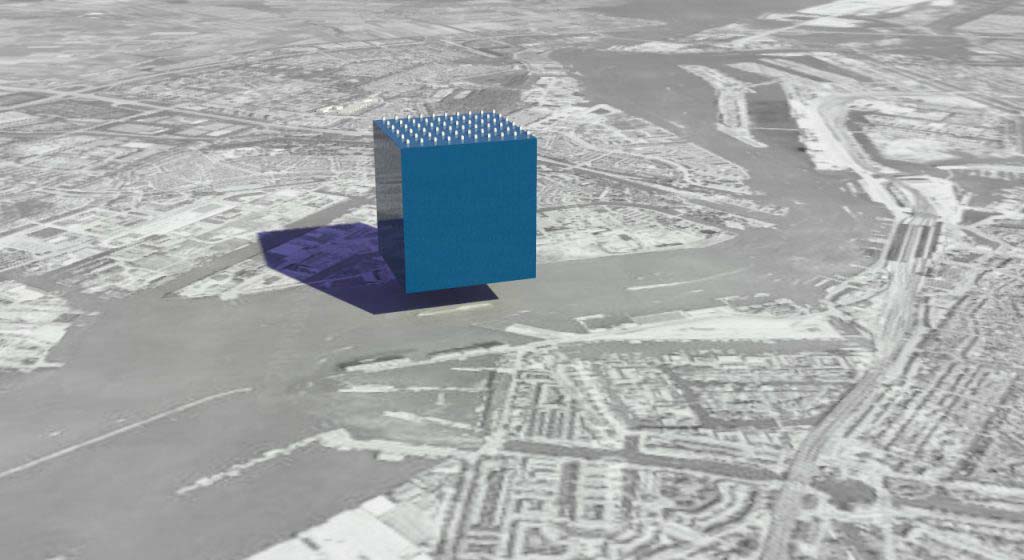
Initial program, 144 inh. – 10 000 000m2 – 300m x 300m cube
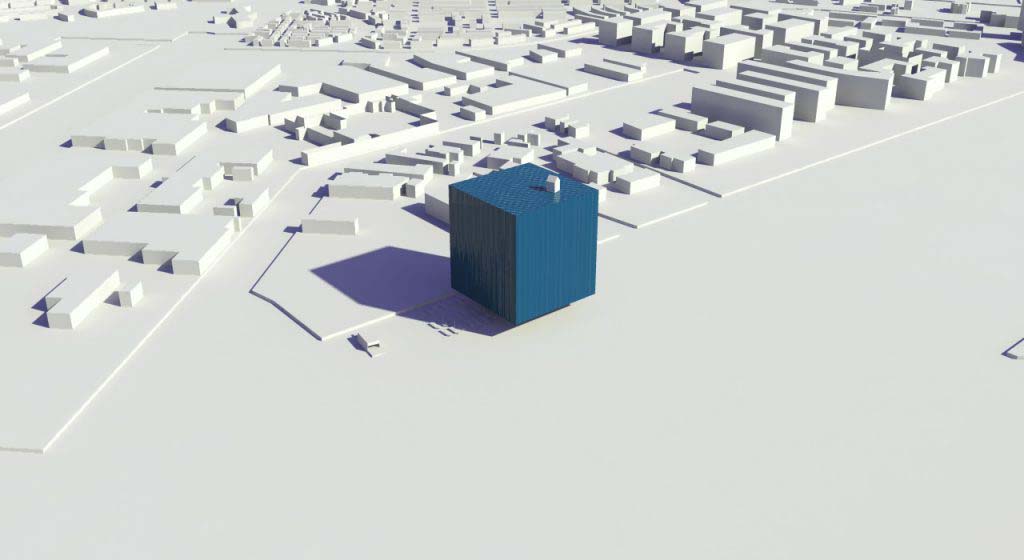
1 person – 44 000m2 – 65m x65m cube
Size of Eco-footprint
Each Dutch person needs a current footprint of 44 000m2 worldwide, this includes croplands, food production, forest, fishing grounds, CO2 compensation (energy), o2 production and build-up land.
Each Dutch person needs a current footprint of 44 000m2.
Evolution of Natural Resources
From green earth to manufactured landscapes; route in building combines the outside natural spiral that represents 1 average eco-footprint with an inside evolution into the manufactured landscape.
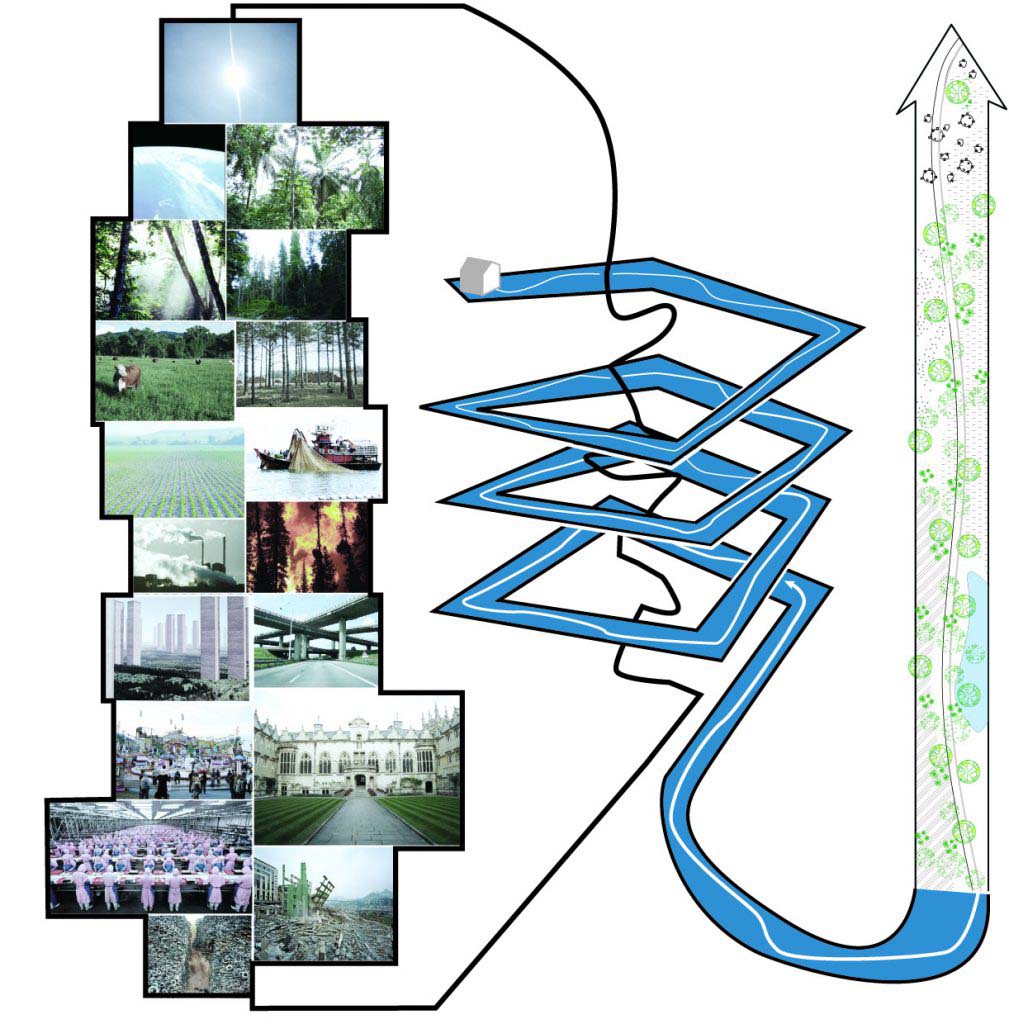
Routing through the fort
Omega Point
Amsterdam instigates the ‘World Sustainability Forum’, a tipping point in globally rethinking eco-colonialism.
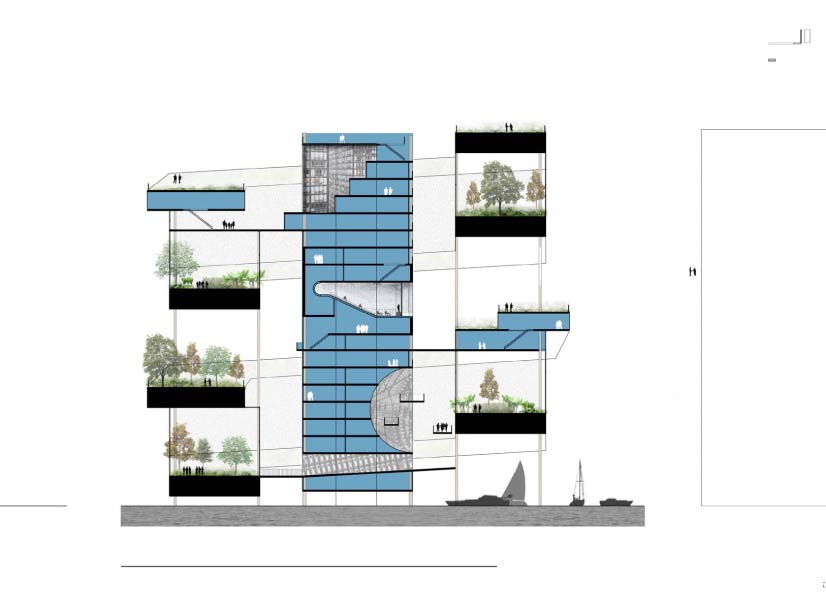
Conceptual section
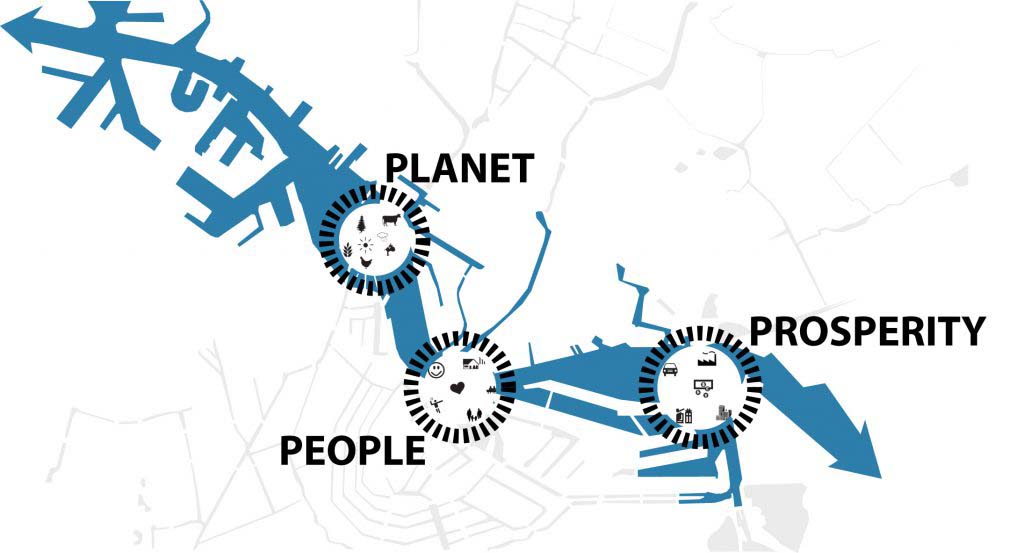
Ij river connections
Ij as Vital Connector
Culminating program around three water chambers, city evolves around sustainable water link.
Planet Route
Water connects green and recreational programs, ‘planet’ bundles North and South potential
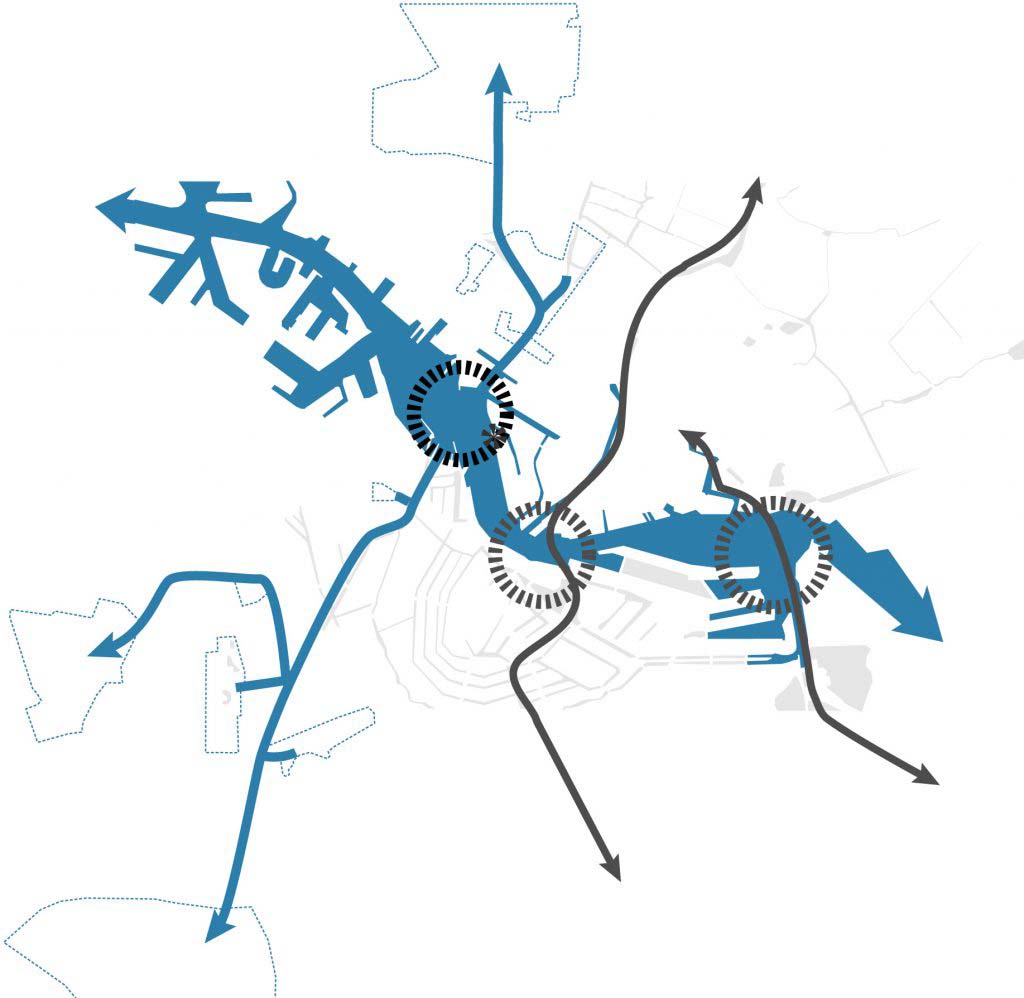
Urban connections
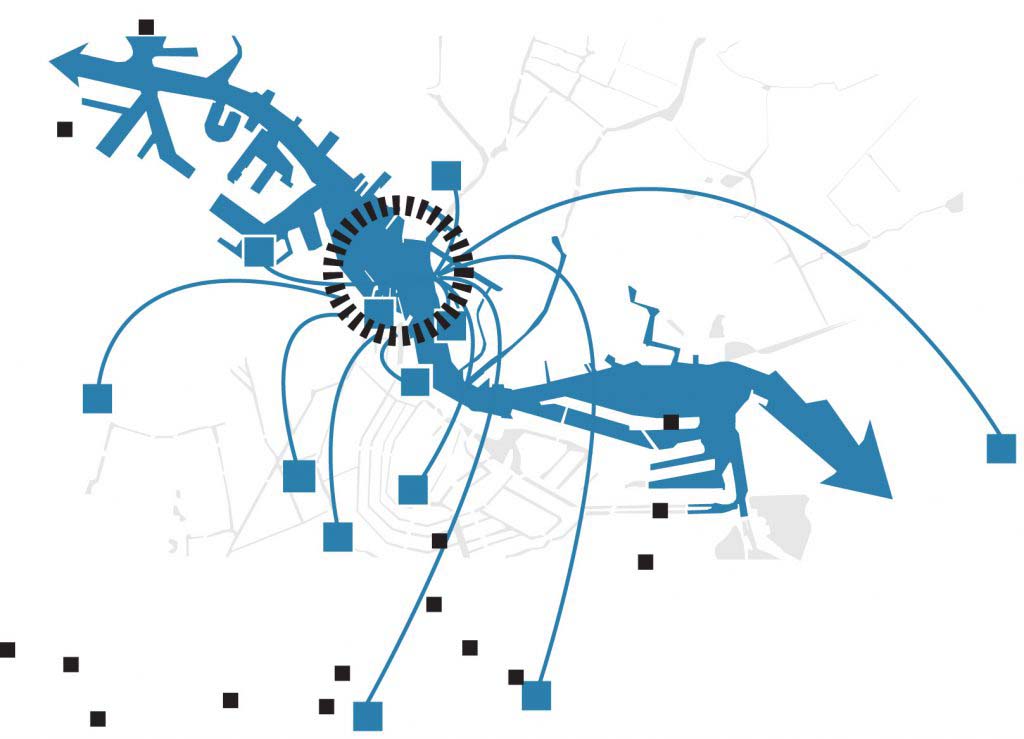
Contextually embedded
I A(I)m Smartsterdream
Sustainable initiatives (Amsterdam SmartCity) can intensify in new planet cluster and create cross-breeding potential.
Amsterdam instigates the ‘World Sustainability Forum’, a tipping point in globally rethinking eco-colonialism.
Urban Intervention
Planet cluster activates urban area with green initiatives.
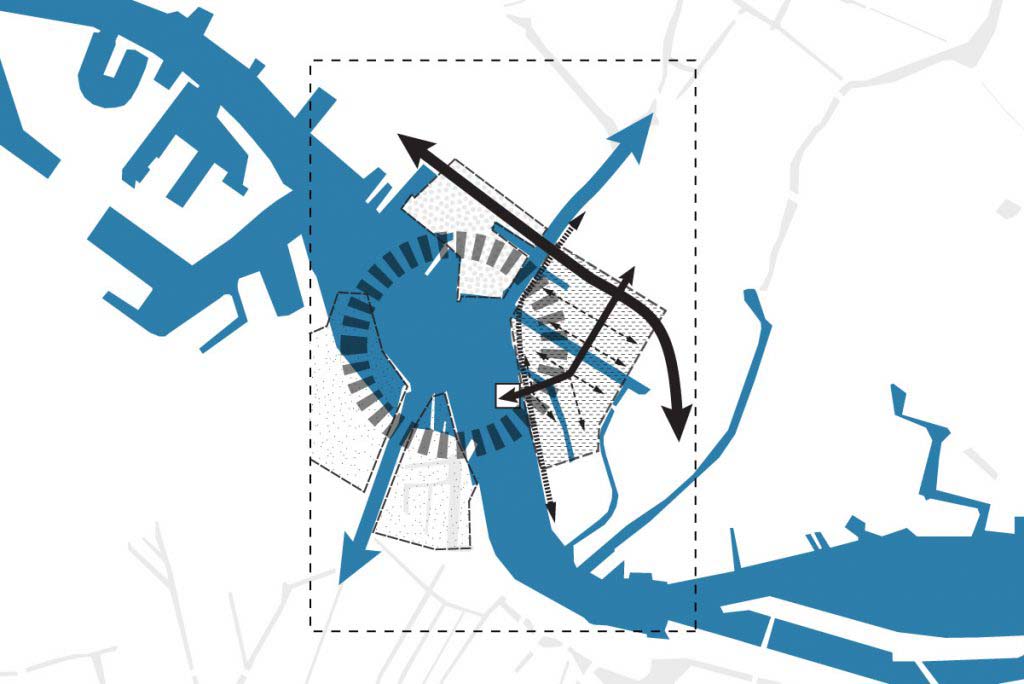
Urban context
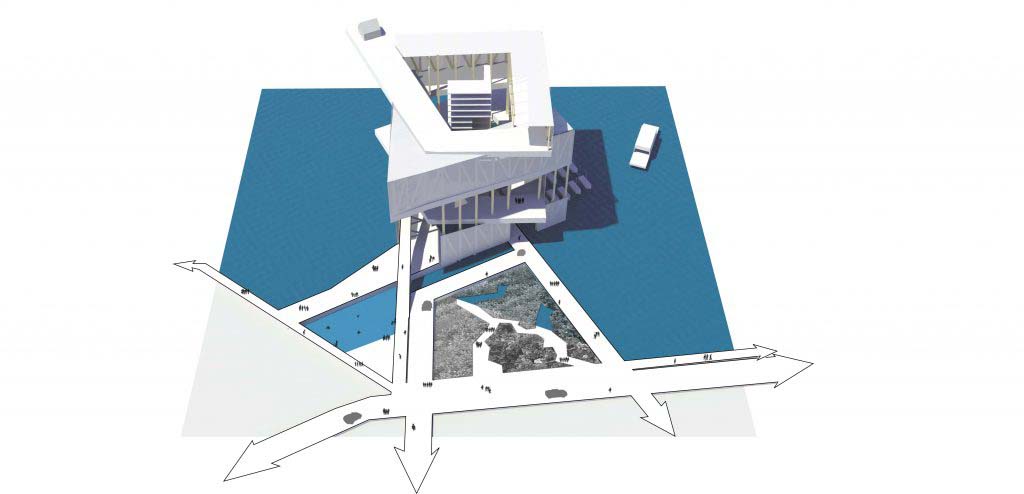
Site plan precinct
Site Connections
The various routes in the area are intertwined with functional program elements inside the Omega point, that includes the World Sustainability Forum as key initiative.
Team: Martijn de Geus, Gerrit Dyk, Renske van Dam, Albert Dyk, Sean Pieters
Project Year: 2010
Location: Amsterdam, Netherlands
